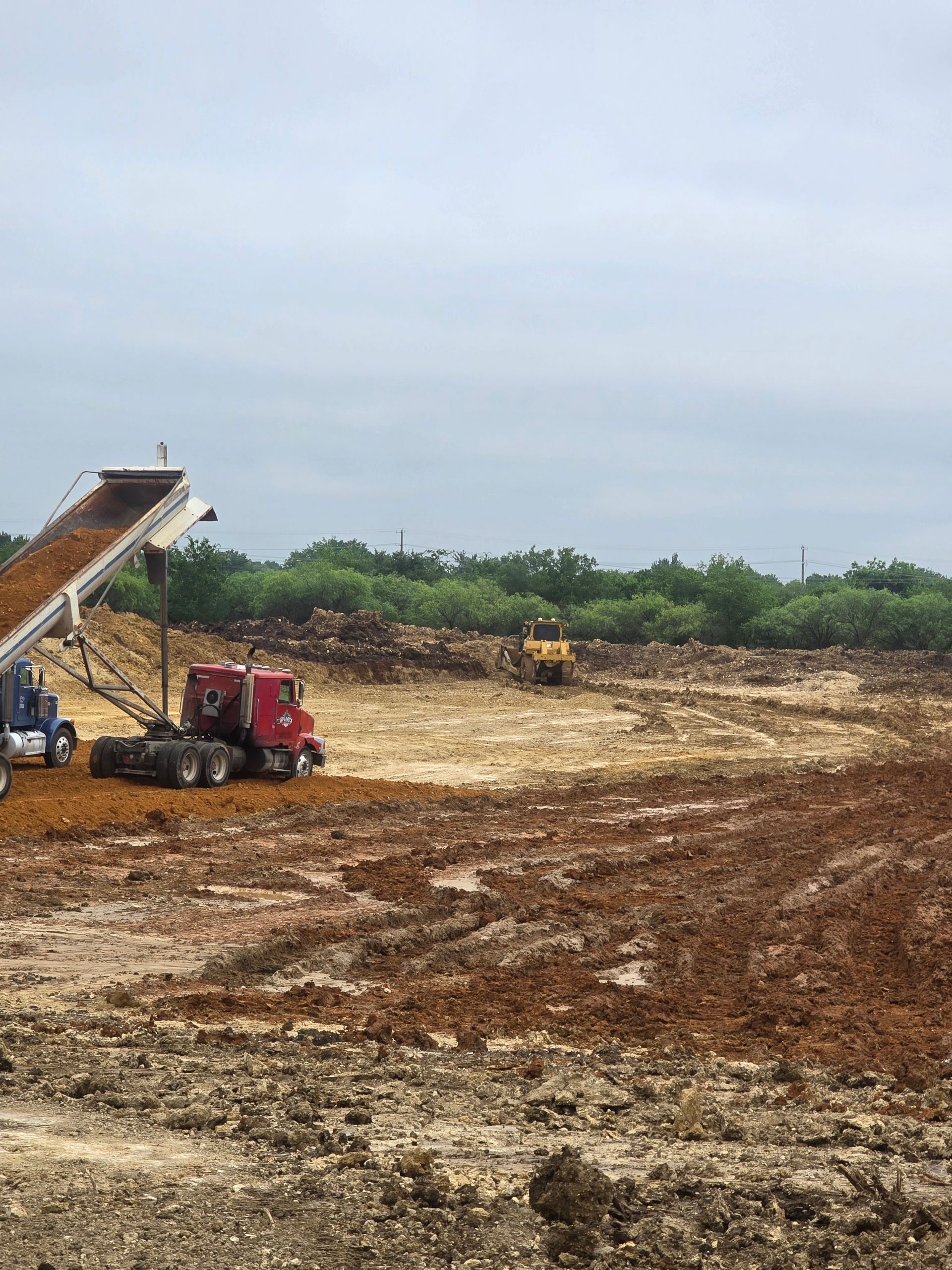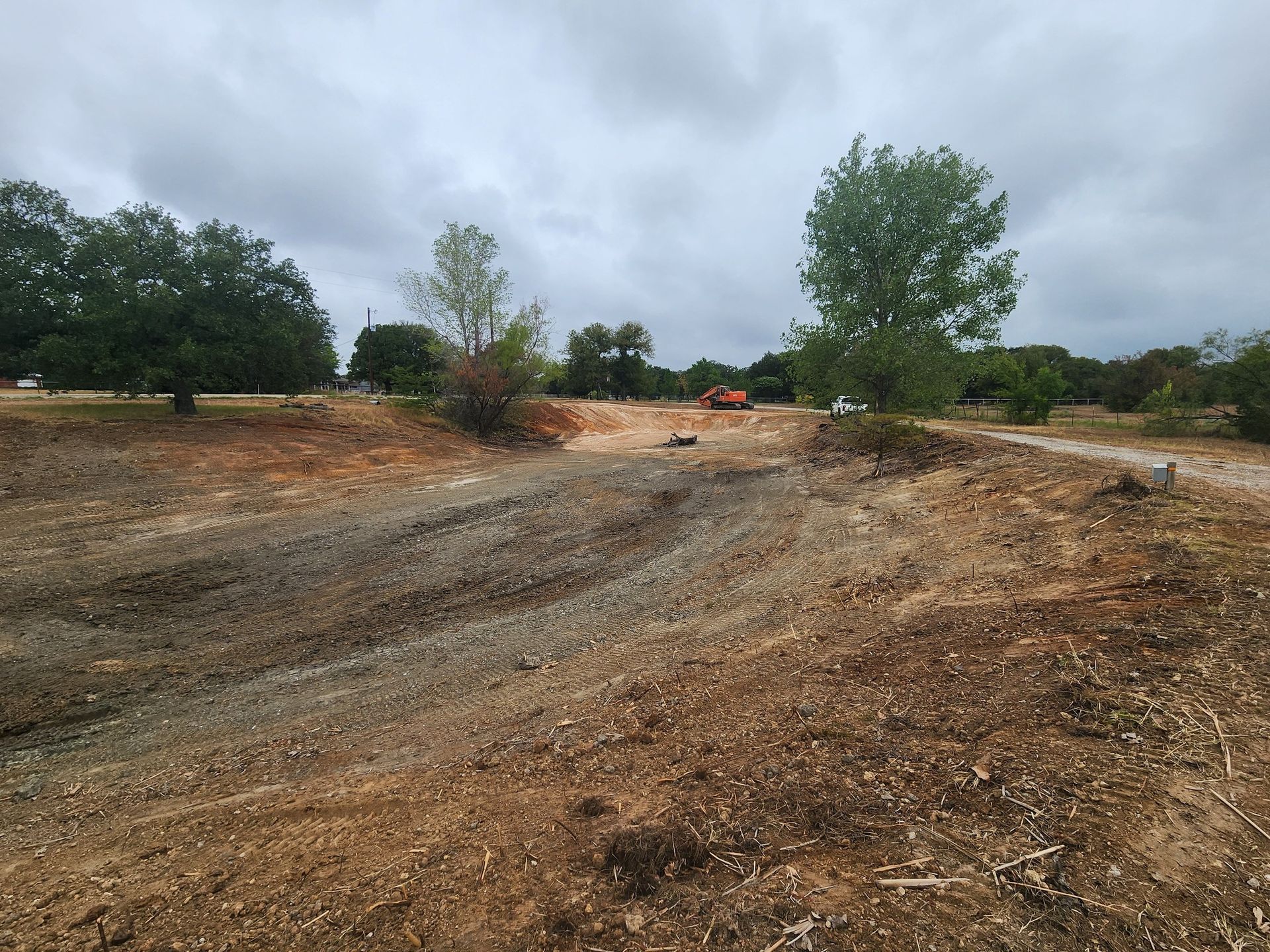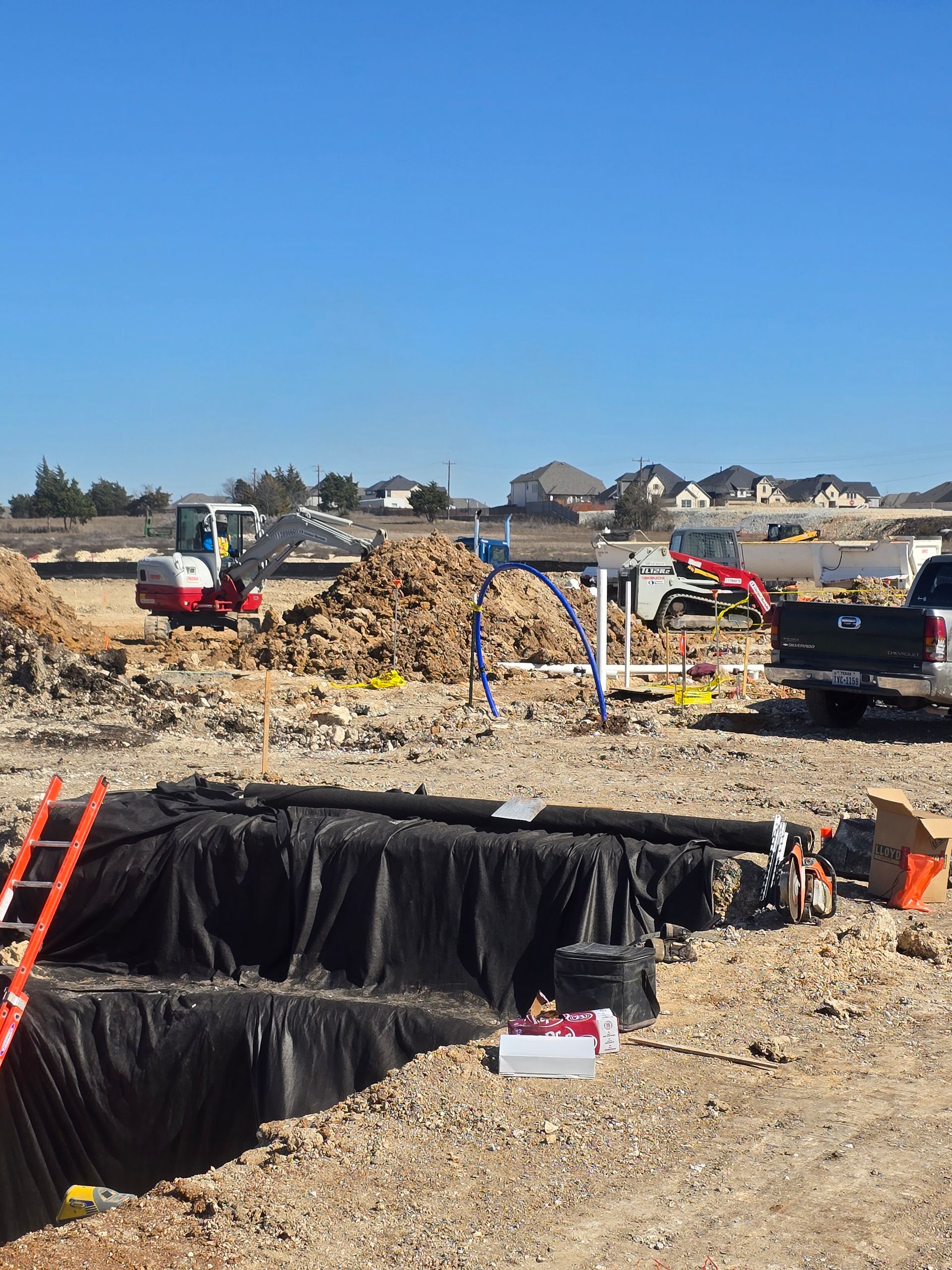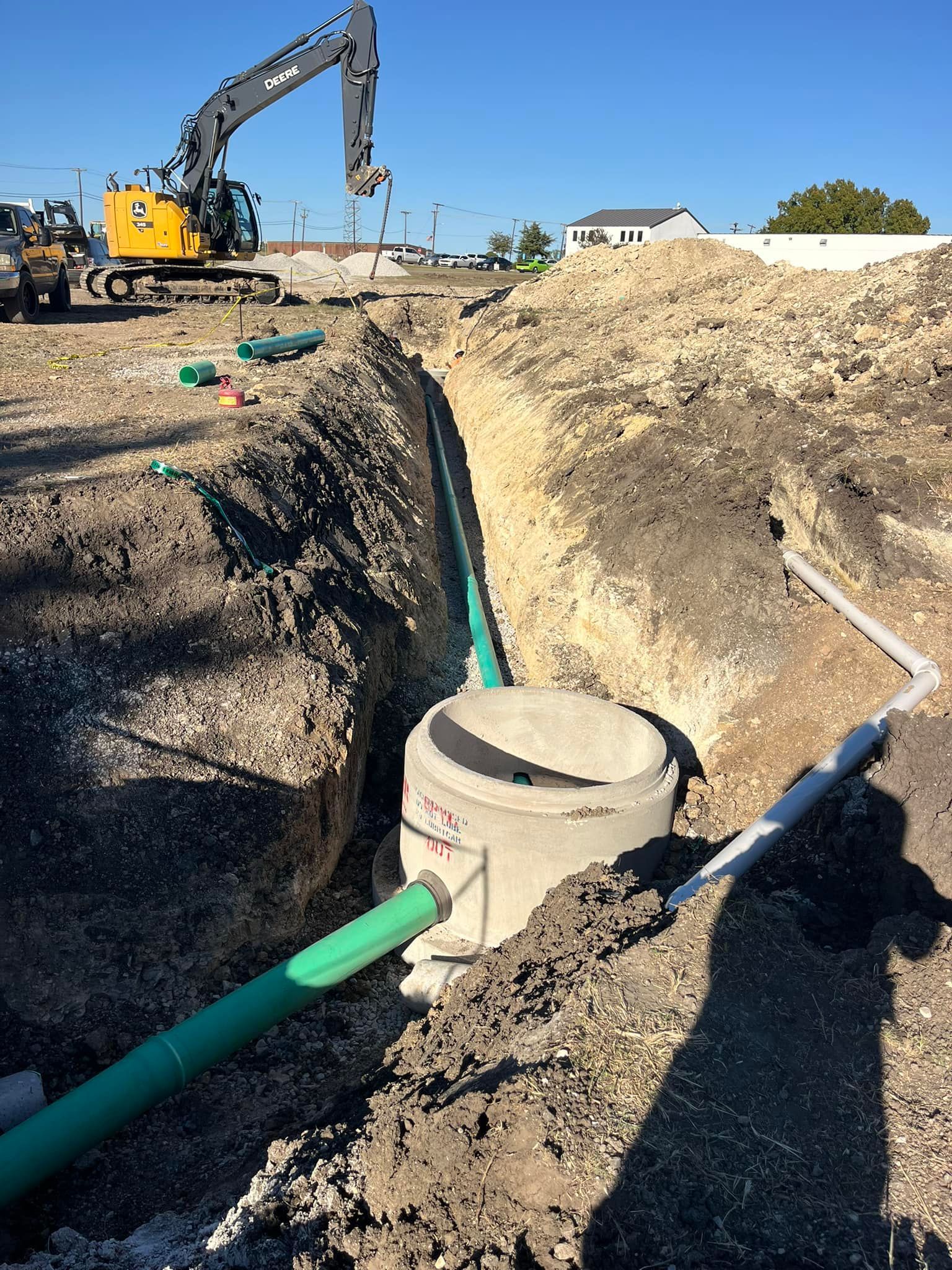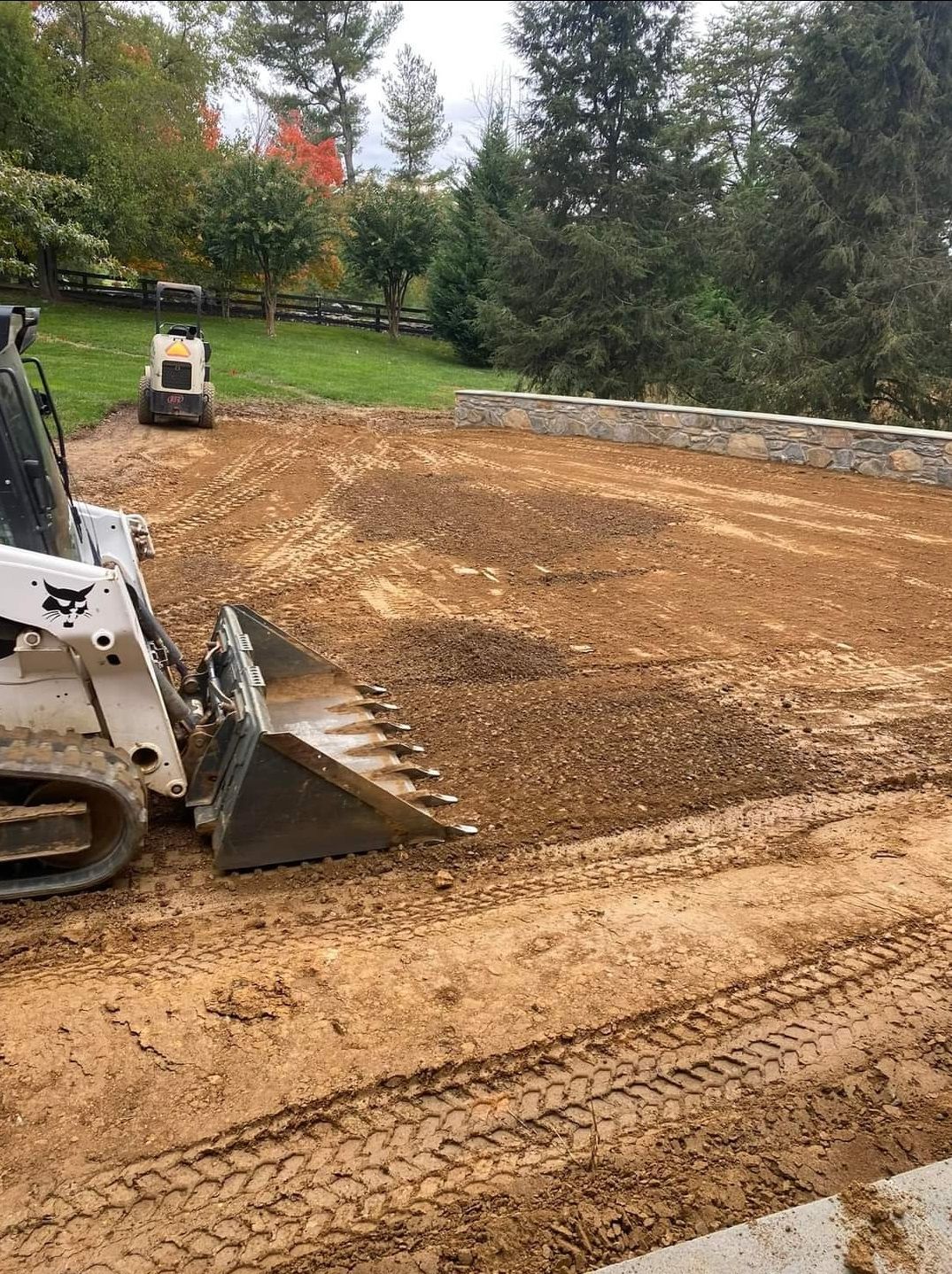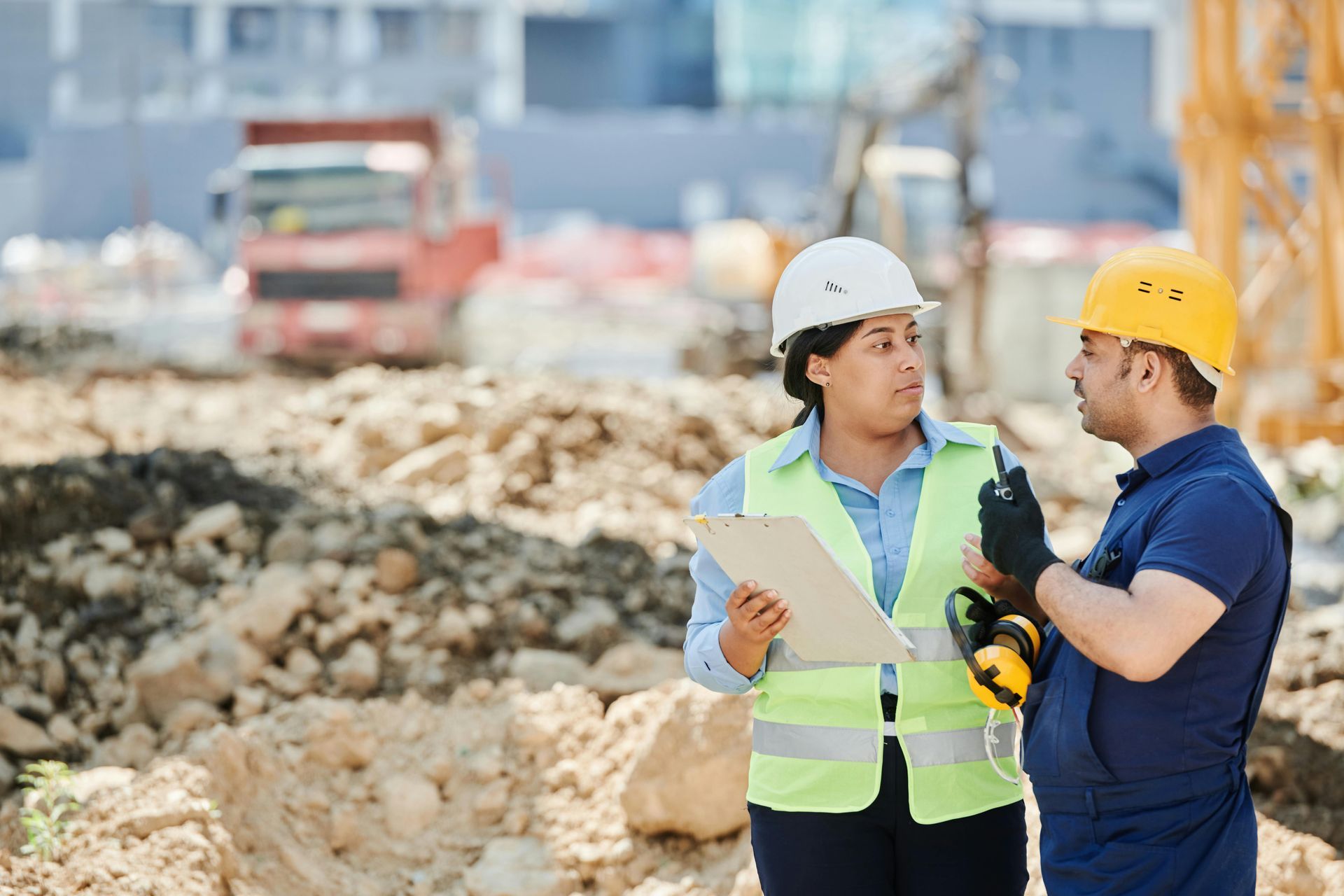Eco-Friendly Excavation
Sustainable Practices for Your Next Project
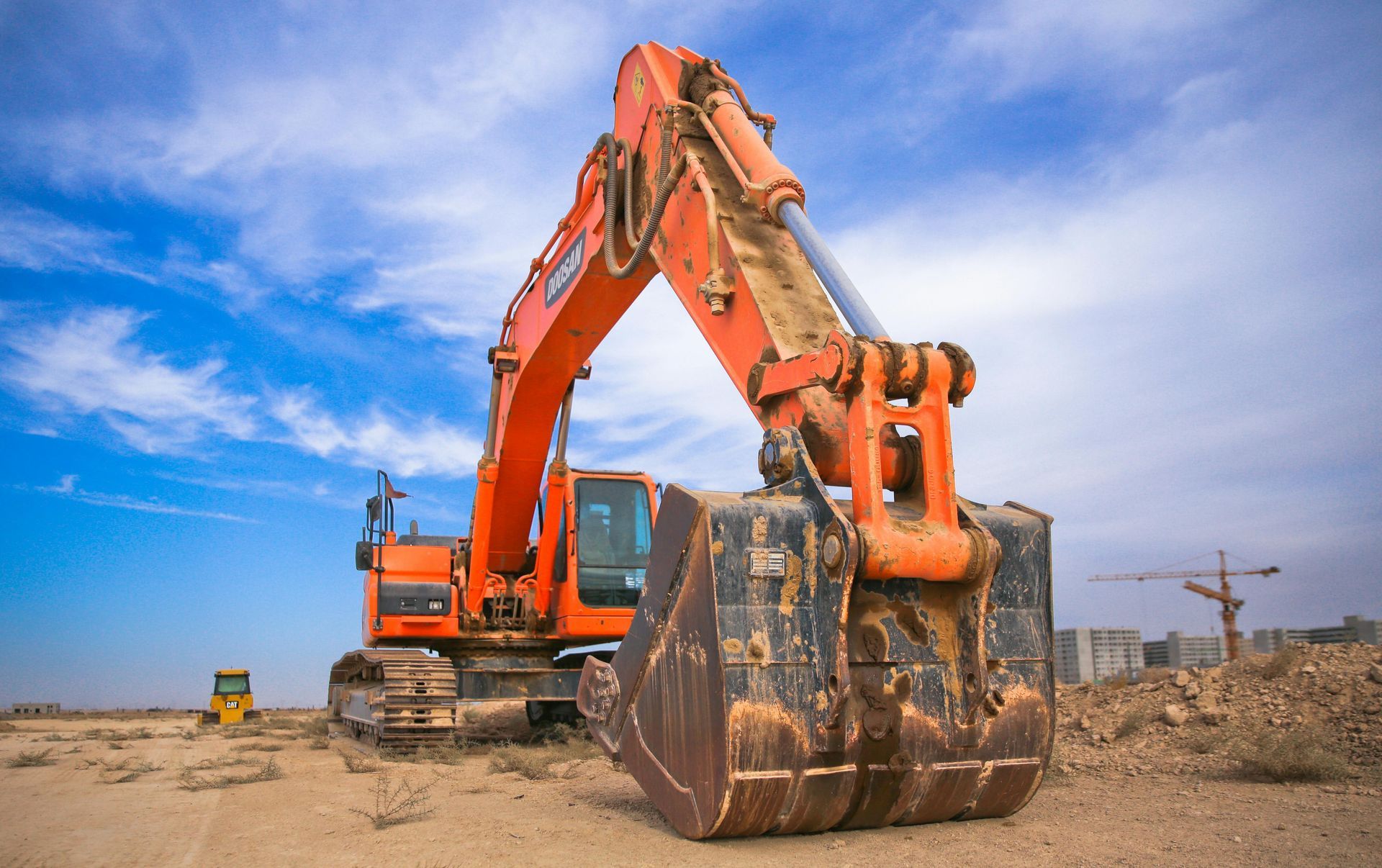
As environmental awareness grows, more property owners and developers are looking for ways to reduce their ecological impact—excavation is no exception. At Midlothian Excavation Solutions, we understand the importance of preserving natural resources while preparing land for construction. Our team follows environmentally friendly excavation practices that minimize disruption, control erosion, and promote sustainability.
If you're planning an excavation project in Midlothian, TX, or the surrounding area, here’s how we ensure a responsible, eco-friendly approach.
The Environmental Impact of Excavation
Excavation involves removing soil, rocks, and debris to prepare a site for construction, utilities, or landscaping. While necessary, improper excavation can lead to:
- Soil erosion that affects surrounding land and water sources
- Excessive waste from displaced materials
- Destruction of natural habitats for local wildlife
- Poor drainage and flooding issues due to improper grading
By using sustainable excavation methods, we help protect the environment while ensuring your project remains efficient and compliant with local regulations.
Eco-Friendly Excavation Practices We Follow
1. Minimal Land Disturbance
One of the most effective ways to reduce environmental impact is by disturbing as little land as possible. Before starting an excavation project, we:
- Conduct a thorough site assessment to determine the exact amount of earth that needs to be moved
- Use precision excavation techniques to avoid unnecessary digging
- Preserve existing vegetation where possible to maintain natural erosion control
This approach helps reduce waste and protects the land from excessive disruption.
2. Responsible Soil Management
Excavation displaces large amounts of soil, and how it’s handled can make a big difference environmentally. Instead of sending excess soil to landfills, we:
- Reuse excavated soil for grading and backfilling when possible
- Redistribute topsoil to support landscaping and vegetation regrowth
- Prevent soil contamination by properly disposing of hazardous materials
Proper soil management helps maintain land fertility and reduces the need for imported fill materials.
3. Erosion and Sediment Control
Uncontrolled excavation can lead to runoff pollution, where loose soil and debris wash into nearby waterways. To prevent this, we implement:
- Silt fencing and sediment barriers to keep soil in place
- Grading techniques that direct water flow away from vulnerable areas
- Vegetation restoration after excavation to stabilize the land
These measures help prevent soil erosion and keep local water sources clean.
4. Sustainable Material Use and Recycling
Construction and excavation projects often produce concrete, asphalt, and other debris. Rather than disposing of these materials in landfills, we:
- Recycle concrete and asphalt for use in new construction and road projects
- Crush and repurpose rock materials for gravel or backfill
- Separate and dispose of waste responsibly, following environmental regulations
By recycling materials, we reduce landfill waste and conserve natural resources.
5. Energy-Efficient Equipment & Fuel Conservation
Heavy excavation machinery consumes significant amounts of fuel, contributing to greenhouse gas emissions. To reduce our carbon footprint, we:
- Use fuel-efficient equipment that meets environmental standards
- Maintain and service machinery regularly for optimal performance
- Plan excavation routes efficiently to minimize fuel consumption
- Utilize alternative fuel sources when available
By prioritizing efficiency, we lower emissions while maintaining high-quality excavation services.
6. Water Conservation & Proper Drainage Planning
Water is a valuable resource, and excavation projects can impact local water levels and quality. We implement:
- Stormwater management systems to prevent water runoff pollution
- Smart grading solutions that direct rainwater to proper drainage areas
- Water-efficient dust control methods, reducing excessive water usage
These strategies help conserve water while preventing site flooding and erosion.
Why Sustainable Excavation Matters
Choosing an eco-friendly excavation process benefits both the environment and your project. Sustainable practices:
- Protect local ecosystems by minimizing habitat destruction
- Reduce long-term costs by preventing soil erosion and drainage issues
- Improve site stability, ensuring long-lasting foundations
- Keep projects compliant with environmental laws and regulations
By working with an excavation company that prioritizes sustainability, you contribute to a healthier, more responsible construction process.
Midlothian Excavation Solutions: Committed to Eco-Friendly Practices
At Midlothian Excavation Solutions, we take environmental responsibility seriously. Our team ensures that every excavation project is efficient, sustainable, and compliant with Texas regulations. Whether you’re preparing land for a new home, commercial building, or landscaping project, we have the expertise to get the job done responsibly.
Contact Us for Sustainable Excavation Services
If you need excavation, lot leveling, or site preparation in Midlothian, TX, or the DFW area, reach out to us today. Let’s build responsibly and protect the environment together.

